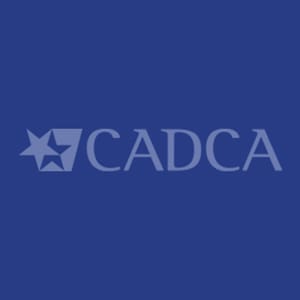Dr. Holly Raffle, Professor of Leadership and Public Affairs at Ohio University’s Voinovich School of Leadership and Public Service, has spent her career creating spaces for youth to engage in evidence-based prevention strategies. Ohio Adult Allies is a network of adults who are committed to facilitating and advancing the work of youth-led programs. Holly works with the Ohio Adult Allies initiative to educate adults as they engage youth in evidence-based prevention strategies with local coalitions. In Ohio, Adult Allies work alongside young people and guide them through a planning process that uses evidence-based strategies to create community-level change and build healthier communities.
Throughout her 30-year career, Holly has engaged youth-led, adult-guided community coalitions from multiple viewpoints. “I actually started with youth-led prevention before I even knew it was a thing. As a high school student in the late 80s, early 90s, I was involved with a program at my high school called peer counseling.” As part of the program, Holly developed the passion for community prevention and became an advocate from a young age. “I really believe people don’t choose this work; it chooses you. So, as I progressed with my career I always went in with a curious mindset and eventually it clicked that I had been doing youth-led prevention this whole time.”
Holly sees firsthand the needs and potential of prevention coalitions in the state. “We provide support to communities for using data to identify the substance misuse issues that are most pressing for their communities. What I aim to do is to unlock the potential that communities already have by providing training, technical assistance, and evaluation support within the confines of SAMHSA’s Strategic Prevention Framework.”
Ohio Adult Allies utilizes the Youth Empowerment Conceptual Framework (YECF) to provide an evidence-based structure for their work. The YECF provides coalitions an in-depth explanation of the ecological context, adult role, and group structure of youth-led programs. It also helps adult allies embrace and further understand the conceptual framework of youth-led, adult-guided.
“One person doesn’t have a magic wand to make change. It’s folks working together. That’s why we really like the YECF as a framework because you look through all the different elements and you see how to structure a program and it is an evaluation tool at its core.”
Serving over 84 communities in Ohio means a lot of diverse and unique situations for the organization to pivot around. “One thing we are especially sensitive to is the idea of ‘adultism’ where the adults show up and say, ‘I’m the adult and this is what goes.’ It doesn’t provide a healthy environment for a youth-led, adult-guided organization at all. So, part of our trainings is helping adults identify and avoid that mindset.”
Ohio Adult Allies utilizes learning collaboratives dispersed throughout Ohio to help expand youth-led prevention across the state. In addition to five collaboratives that are centered around geographic regions, there are three collaboratives designed build affinity with cultural groups. Right now, the organization fields three affinity-based learning cooperatives: one in Appalachia, one for serving BIPOC youth, and one for Northern Ohio’s growing Hispanic population.
Sharing the successes and methods of Ohio Adult Allies is something that is always on Holly’s mind. Recently, Holly co-authored with her colleagues a chapter in The Cambridge Handbook of Community Empowerment, detailing the work that Ohio Adult Allies has done in the state. “Establishing a literature base is important because that’s how other people can find the work and find value in the work. But that’s not the way a lot of practitioners will access the work, so you have to meet people where they’re at, segment your audience, and really work hard to provide teaching to everybody where they’re at.”
Holly ended the interview recounting what she’s learned over her career. “This work is important and intentional, but it has to be funded. Both federally and at the state level, there has to be investment to move it forward. This work brings together a huge cross-section of passion from across the state; from government partnerships to the education sector to prevention providers to community nonprofits. It takes all of us ensure that young people have opportunities to meaningfully contribute to prevention.”


